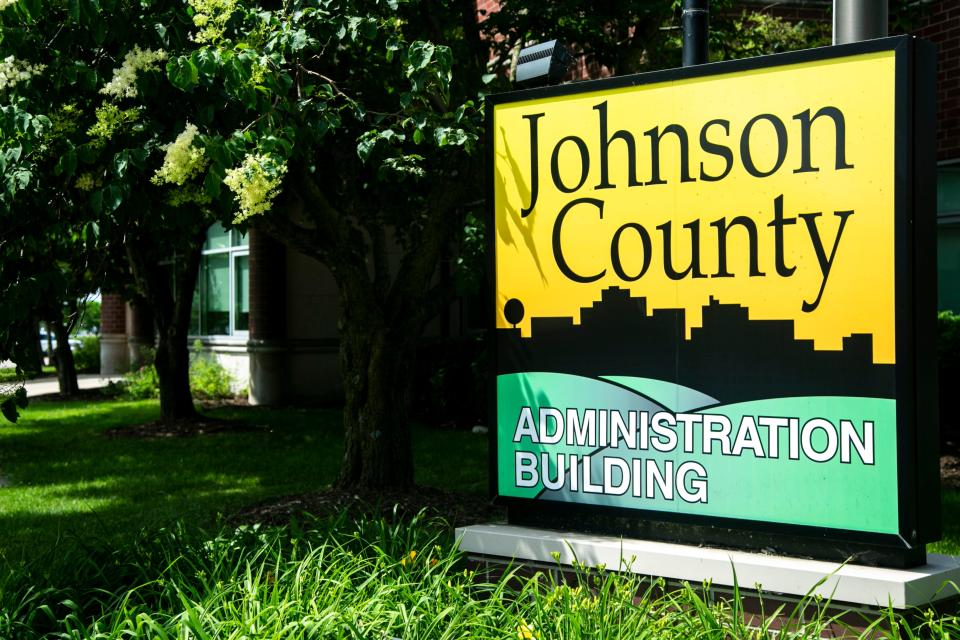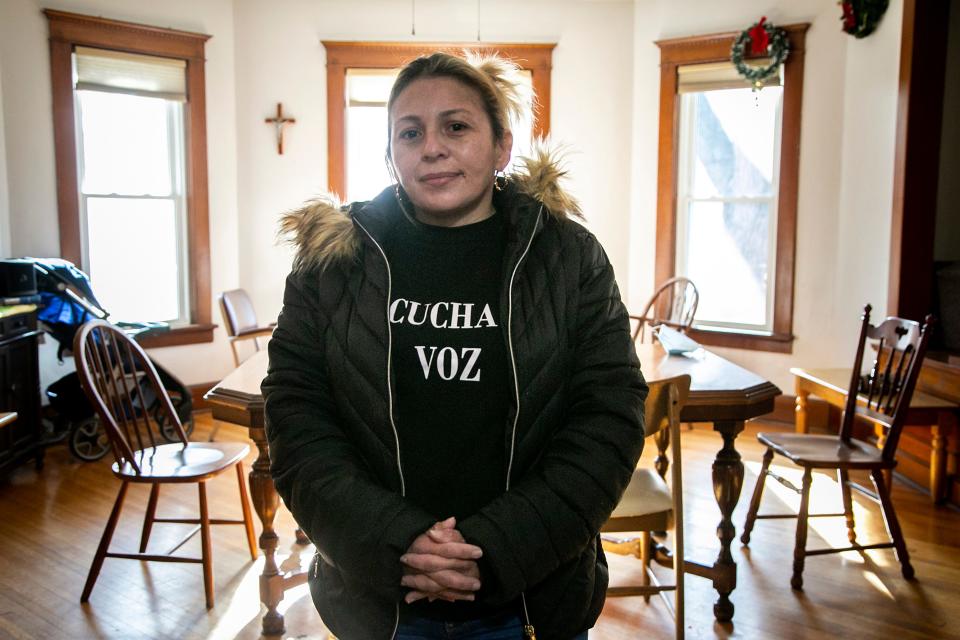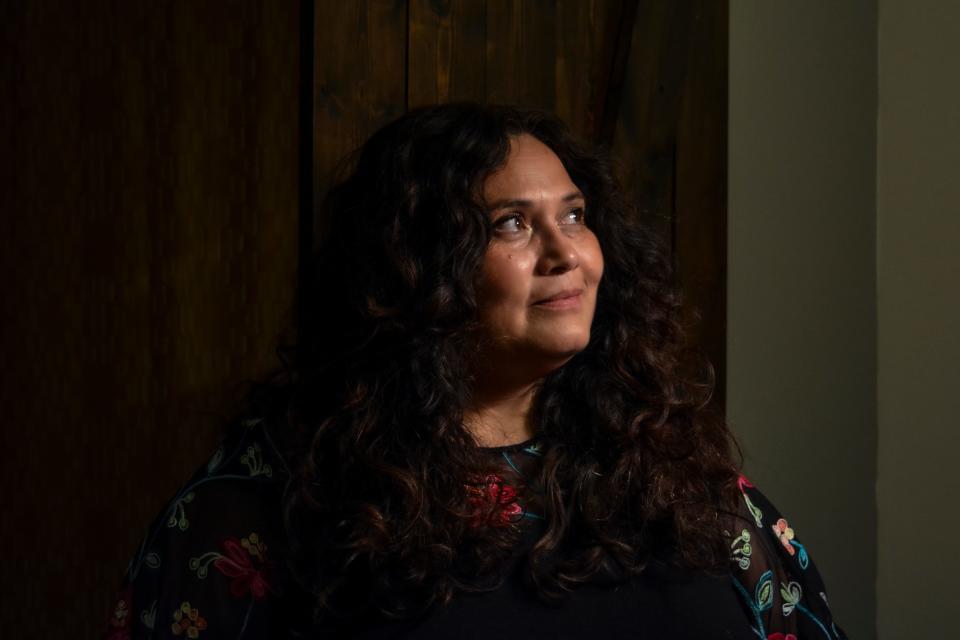2,596 apply for Johnson County Direct Assistance Program. When will people get their $1,400 checks?
More than 2,500 people applied to a Johnson County program that will send $1,400 checks to low- to moderate-income residents.
The application deadline for the Direct Assistance Program closed Friday afternoon. Not everyone who applied will receive a check. The program's eligibility requirements include proving income and residency.
In all, 2,596 people applied for stimulus payments from the county, which said checks will be distributed by early July.
Donna Brooks, the grants coordinator for Johnson County, told the Press-Citizen that this program has been "all-consuming" for the county, but she is confident many people will benefit from what she called one of the most ambitious plans for a local jurisdiction to spend money from the American Rescue Plan Act. Johnson County received $29.3 million in federal funds, and Brooks believes believes its stimulus plan is unique in Iowa.
"We hope that this program will provide the benefits we anticipated it would, which is local economic recovery and stimulation as well as household stabilization," she said. "The community need was there, and this was a worthwhile investment of ARPA resources."
Brooks said between 2,300 and 2,400 people will end up receiving a check. First will come a period of about two weeks for people to be offered a chance to correct any mistakes made on their application.
"There is a possibility that several hundred applications will be ineligible, and we will have more funds than we actually have applicants," Brooks said.
If this happens, she said the remaining funds will likely be sent back to Iowa City and Coralville. She said she is confident all of Johnson County's $2 million set aside for the stimulus program will be used up.
Iowa City contributed $1.5 million to the program while Coralville voted Tuesday to give an additional $30,000.

Brooks doesn't have an exact total for how many checks will be sent out for two reasons — the administrative costs for the program aren't yet known, and some of the applicants could be deemed ineligible, lessening the total amount.
If more people who applied are eligible than there are checks in the program, a lottery system will be triggered to pick those who get a direct payment.
The Press-Citizen previously reported that about 2,500 people will be eligible for these payments, which would use up the $3.5 million allocated. That did not take into account the administrative fees the county will assess, staff time and the envelopes needed to mail out the checks.
All 2,596 applicants will be notified at the same time if they were deemed eligible or ineligible. Those declared ineligible will be given the chance to correct applications, which Brooks said should be completed between June 10-17.
Brooks said an application could be deemed ineligible for several reasons, such as attaching the wrong document to verify income or residency, or if the information in the application doesn't match the documentation.
Brooks said applicants can expect to receive their checks in late June or early July.
Brooks said the original May 23 deadline for the Direct Assistance Program was extended to May 27 because the county received nearly 500 new applications the weekend of May 21-22.
"It became such an extreme push over that weekend and there were literally hundreds of residents who were eligible based on what they were reporting over the phone and through email ... and so we made a good-faith-effort decision to extend the application," she said. "We are really grateful we did decide to extend it another five days. We reached a lot of residents who were eligible and needed support."
Activists worry program will not help enough people, point to barriers in application
Members of the Iowa City Catholic Worker House and Escucha Mi Voz, an activist organization that formed out of the push to create a stimulus program tailored toward "excluded workers," are worried that the county didn't reach everyone who would have potentially applied.
Ninoska Campos and Miriam Alarcón Avila, two organizers with Escucha Mi Voz, spoke to the Press-Citizen after the deadline ended Friday. Alarcón Avila interpreted for Campos, who said she is very happy more than 2,500 people have a chance to get a direct payment.
"Escucha Mi Voz helped more than 600 people to fill out applications and more than 400 people were not able to apply because they weren't able to comply with all the paperwork that Johnson County required," she said. "We are happy the money is finally coming. We've been waiting for too long, but we can wait a little more."

Many of the people that Escucha Mi Viz and the Catholic Worker House have advocated on behalf of are undocumented immigrants and other "excluded workers" who did not receive any of the federal stimulus checks or unemployment benefits that other American citizens got early on in the COVID-19 pandemic. This includes Campos and many others who filled up board rooms of Johnson County-area government meetings for the last year.
Campos said she applied as soon as the process opened in April, speculating that she may have been the first. She said she thinks she supplied the correct documentation to be deemed eligible but is worried about many others that her organization helped.
Campos said no one who applied wants the outcome to be decided by a lottery, where randomly selected applicants will get a check and others who are eligible will be at risk of being left out.
Campos and Alarcón Avila pointed out that many applicants are either self-employed contract workers or worked "under the table" for employers who refused to sign documentation proving income to Johnson County, leaving them ineligible for the program.
"There are people that when they come (to the U.S.), they lost a lot of documents in their traveling, even birth certificates," Alarcón Avila said.
They said some people also had issues proving residency they live together in the same household but the paperwork is only under the name of one person. They said the Johnson County Community ID program ended up helping a lot of people prove residency.
Campos and Alarcón Avila said they are asking Johnson County to add another $2 million to the program, extend the program deadline and reduce the restrictions so that the 400 people Escucha Mi Voz couldn't help and many others can apply.

Campos said people also had issues with technology beyond just email, including not having access to the technology needed to take photos of documentation and a computer to do the application. This is something Brooks said the county also experienced throughout the application process.
"We didn't foresee the amount of barriers people would face with email addresses or online application portals," Brooks said.
Brooks said there was a surprising amount of people who didn't have email addresses and were hesitant to create one to apply. She said some applicants also expressed guilt and hesitance in applying because they thought they would be taking away the opportunity from others who might need a $1,400 direct payment more.
"That was kind of an interesting thing we didn't anticipate," she said. "I honestly thought we would reach a lot of low-wage workers, but we didn't see as much of that as we thought we would."
Brooks said the county ended up assisting a large amount of homeless residents of Johnson County. She said, while $1,400 won't help solve homelessness, it can provide resources to help people get down-payments on apartments, seek other resources or at least get by another couple months.
George Shillcock is the Press-Citizen's local government and development reporter covering Iowa City and Johnson County. He can be reached at (515) 350-6307, GShillcock@press-citizen.com and on Twitter @ShillcockGeorge
This article originally appeared on Iowa City Press-Citizen: Johnson County to send over 2,000 stimulus checks worth $1,400 each

